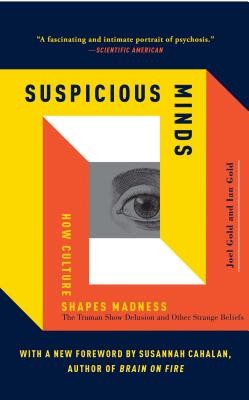
- We will send in 10–14 business days.
- Author: Joel Gold
- Publisher: Free Press
- ISBN-10: 143918156X
- ISBN-13: 9781439181560
- Format: 14 x 21.1 x 2.8 cm, softcover
- Language: English
- SAVE -10% with code: EXTRA
Reviews
Description
A "clear, witty, and engaging" (The Boston Globe) journey through the brain that connects neuroscience, biology, and culture. An "intellectual landmark" (Edward Shorter, Literary Review of Canada). The current view of delusions--the strange beliefs held by people with schizophrenia and other psychiatric illnesses--is that they are the result of biology gone awry, of neurons in the brain misfiring. In Suspicious Minds, Dr. Joel Gold and his brother Ian Gold argue that delusions are the result of the interaction between the brain and the social world. They present "a dual broadside: against a psychiatric profession that has become infatuated with neuroscience as part of its longstanding attempt to establish itself as 'real medicine, ' and against a culture that has become too networked for its own good" (The New York Times). The book "amounts to nothing less than a frontal--or perhaps pre-frontal--challenge to the dominant view of modern psychiatry, which looks to neuroscience to explain disorders of the mind" (The Washington Post). In "a droll Oliver Sacksian tone" (The Village Voice), the Golds reveal intriguing case studies: the man who was dead and in hell, the woman who could raise the dead at Ground Zero, the man who killed God, and the people who believed they were like the characters in the film The Truman Show. These "page-turning case studies" (New Republic) of delusion "offer a fascinating and intimate portrait of psychosis" (Scientific American). "They provide more proof that no fantasist can hope to match the wonders--and horrors--of the human mind" (The Washington Post).- Author: Joel Gold
- Publisher: Free Press
- ISBN-10: 143918156X
- ISBN-13: 9781439181560
- Format: 14 x 21.1 x 2.8 cm, softcover
- Language: English English


Reviews